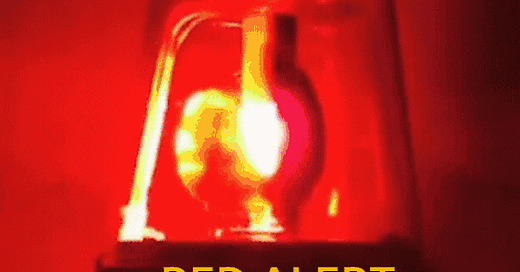The Fog of Fear: How Crisis Undermines Democracy
Another 911 Attack, Real or Staged Could Spell the End
If a large-scale cyberattack, domestic terror incident, or war threat unfolds in the next few weeks, watch closely what powers are claimed in response. The danger is not just the event, but the long-term surrender of democratic control under the guise of “temporary” safety. So, stay alert. Stay organized. Truth spreads faster when people are ready for it.
History shows us that democracy is rarely destroyed in a single dramatic act. More often, it fades beneath the surface of crisis. When fear takes hold, after a terror attack, a war scare, or a cyber shutdown, reason retreats. The public becomes vulnerable, and democracy hangs in the balance.
Fear is the ideal tool for would-be authoritarians. It silences dissent, amplifies division, and makes strongman politics look like safety. Leaders claim emergency powers, promise order, and demand obedience. Citizens, desperate for stability, often comply. What begins as a temporary response can quickly become a permanent regime shift.
We have seen this before. The Reichstag fire gave Hitler his opening. September 11 ushered in the PATRIOT Act and mass surveillance. In Russia, apartment bombings preceded Putin’s rise. In each case, fear made space for authoritarianism, and afterward, it was nearly impossible to reverse.
In 2025, America stands on that precipice. The ingredients are all there: heightened polarization, disinformation, and a growing appetite for executive power. A manufactured or conveniently timed crisis, whether false flag or not, could push the country over the edge. The loss of liberty would not come with a bang, but with an emergency briefing and a wave of applause.
The real danger is not the crisis itself. It is the political response. If courts roll over, if the press is cowed, and if citizens allow fear to override principle, democracy could be dismantled within weeks.
The antidote is awareness. We must recognize the pattern: crisis, fear, control. And we must resist it, not later, but now. Because once liberty is surrendered, it is rarely returned without a fight. In moments of fog and uncertainty, clarity becomes our greatest defense. So we ask: Will we trade our freedom for the illusion of safety, or will we hold the line while we still can?




